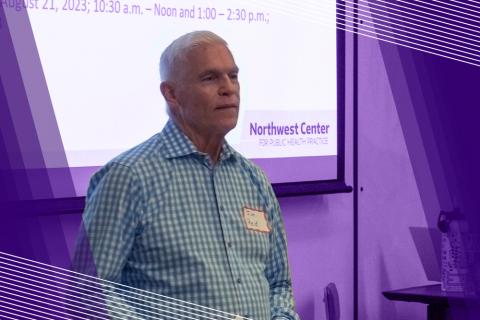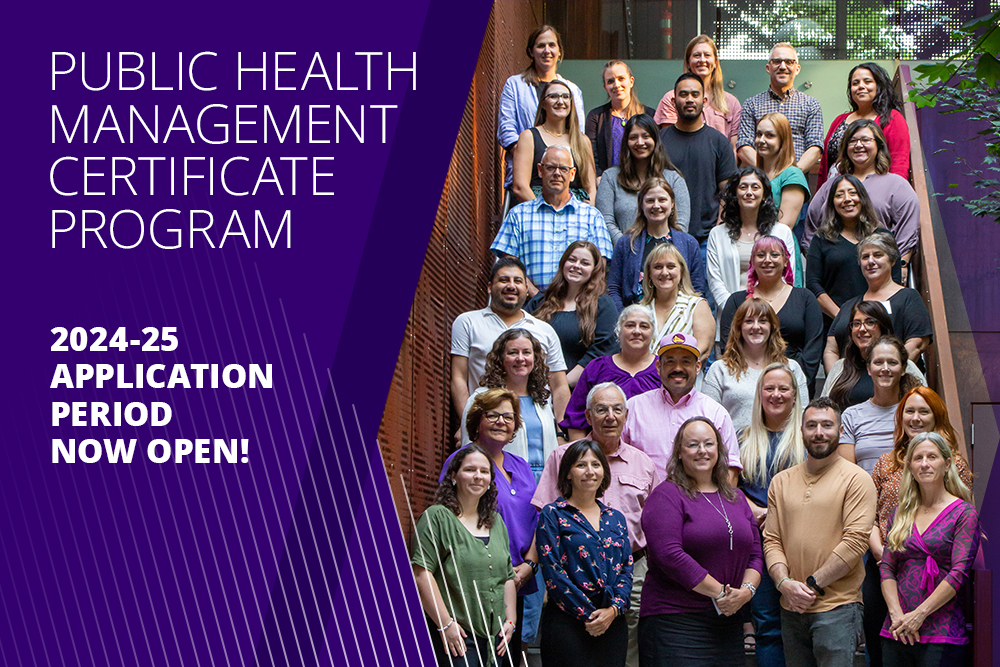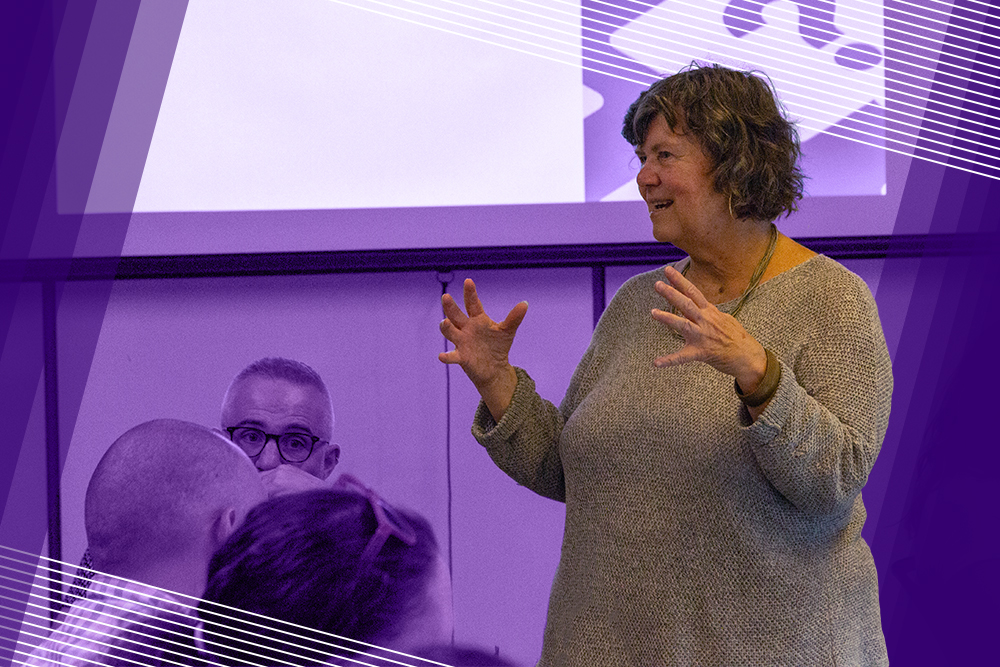
Jim Reid during the 2023 onsite.
Jim Reid has been teaching Conflict Resolution at UW for nearly thirty years.
He began working in the Evans School of Public Policy and then brought his skills to the Public Health Management Certificate program (PHMC). As NWCPHP looks forward to next fall’s PHMC cohort, we sat down with Jim to discuss his background, his approach to teaching, and how his course can prepare scholars to become more effective managers.
“All studies show that the higher an individual rises in an organization, the greater percentage of their time will be involved in negotiation,” Jim explained. “Senior leaders in most organizations spend nearly 95 percent of their time in some sort of conflict negotiation or mediation. That can be formal or informal, but it’s clear that if you’re hoping to rise through the ranks in your organization, it’s essential that you learn these conflict management skills.”
Jim emphasized that the materials he teaches are not abstract concepts. “Just think of the Covid pandemic and how much time public health officials spent trying to convince certain people about the importance of masking, social distancing, or vaccines. This was a huge challenge that involved complex communications strategies and negotiations, and it’s an example of the tangible, day-to-day challenge that many public health professionals face.”
Jim’s professional background has provided him with a wealth of experience in resolving disputes. “I’m very much more of a practitioner than an academic, and the materials I teach are drawn from my experiences running my own business for the past thirty years. In that role, I’ve provided conflict mediation, strategic planning, and leadership development to a wide range of organizations, businesses, and government agencies.”
Jim’s approach to conflict resolution is what he calls “interest-based,” which is centered on identifying the mutual interests various parties in conflict might share. “If we can find the thing or things that two people in conflict are both interested in achieving — even if it’s as basic as, Neither of us want to lose our jobs — we can build upon those common interests to resolve disputes. This can take a little more time on the front end, but it’s much more effective in the long run. I’ve found this approach leads to better results and outcomes, and it’s much less expensive and time-consuming.”
Jim teaches several specific conflict resolution principles that can empower managers to lead successful negotiations. “We delve into issues like power and authority, explore how we influence and impact others, and consider the importance of clear and considerate communication. Some of these are so-called soft skills, such as paying attention to body language or how people are seated during conversations, but they’re all very focused on helping managers find the best alternatives to reach consensus agreements.”
Jim also emphasizes health equity and DEI concepts throughout his classes. “I’ve worked with several Indian Tribes across the Pacific Northwest, and as a result, I now spend a lot of time trying to incorporate broader equity considerations in my courses. I have scholars study several case studies that examine the impacts of power and influence on an organization. These studies look at conflicts that can arise over issues such as race, gender, and age. I’ve found that this is a great way to open conversations and explore these concerns in much greater depth.”
“I have a very deep and abiding passion for this material,” Jim added. “Learning these skills and applying them to real-world settings — whether at work or elsewhere — is tremendously practical. This course can have a huge impact on anyone who’s interested in advancing their managerial skills. I get excited when I see scholars become better listeners and communicators. It’s very rewarding for me and very impactful for them.”
The next PHMC program will begin in August of this year. To learn more and apply for the 2024 cohort visit the PHMC training page.


